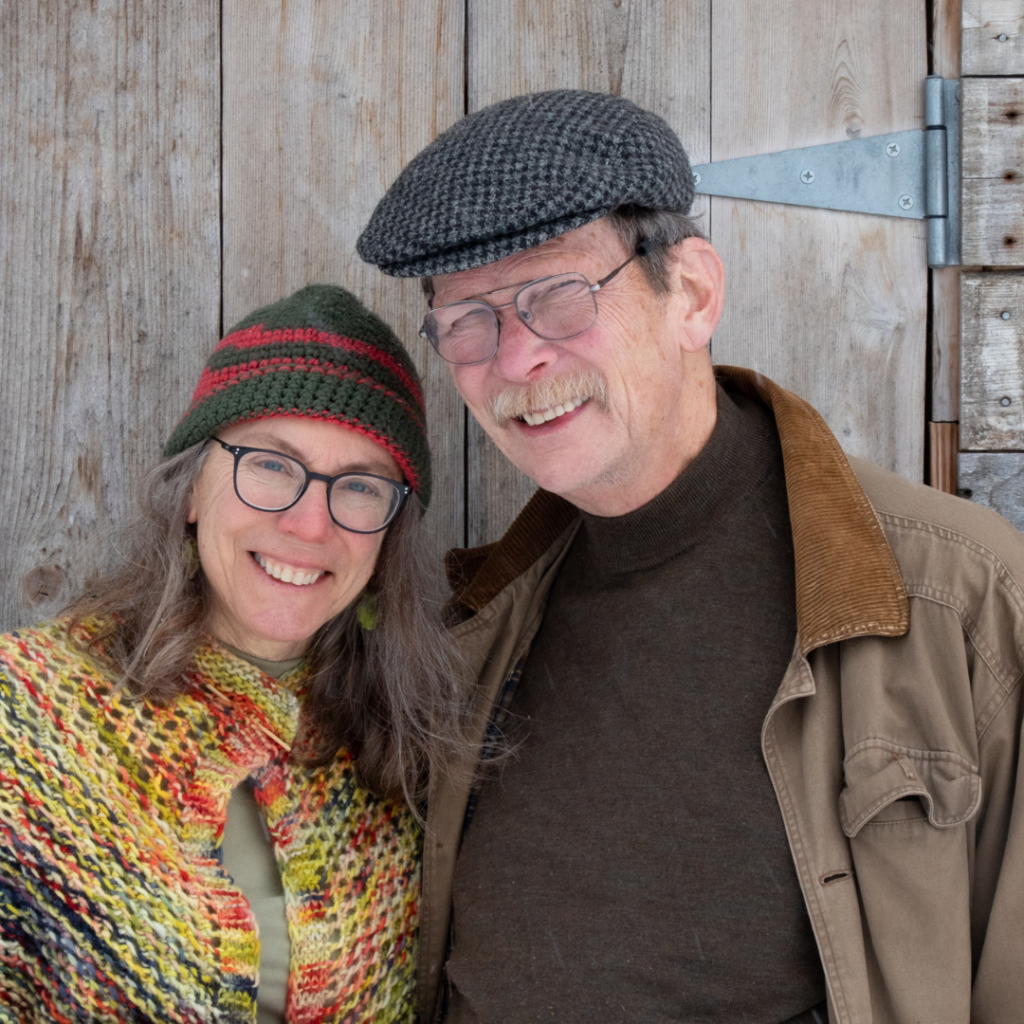In Their Own Words: Jeff Klahn and Elisabeth Swain

Supporting Nature Where They Are
Like many Iowans, Jeff Klahn and Elisabeth Swain love the outdoors. Both lifelong biologists — Jeff with a PhD in animal behavior and Elisabeth with a PhD in botany — they firmly believe in the value of environmental education and conservation. (Elisabeth is the executive director of Iowa Master Naturalists, a nonprofit run entirely by volunteers.) Spurred by their frequent contact with the natural world and seeing firsthand the effects of human activity on wildlife diversity, they are accomplishing much to protect the land they love, for all of us. They recently spoke with Development Director Rachel Luppens about what Bur Oak means to them.
the value of environmental education and conservation. (Elisabeth is the executive director of Iowa Master Naturalists, a nonprofit run entirely by volunteers.) Spurred by their frequent contact with the natural world and seeing firsthand the effects of human activity on wildlife diversity, they are accomplishing much to protect the land they love, for all of us. They recently spoke with Development Director Rachel Luppens about what Bur Oak means to them.
Rachel Luppens: How did you become involved with Bur Oak Land Trust?
Elisabeth Swain: I came into contact with Bur Oak Land Trust while looking for volunteer opportunities for graduates of the Iowa Master Naturalist Program. Bur Oak made it easy to volunteer. People need to feel invested. If they get involved, feel valued, and see the fruits of their labor, they’ll become active conservation advocates. That’s the whole point.
Jeff Klahn: I am interested in Bur Oak, and Elisabeth is as well, because it can act in several ways. One of the primary ones is simply to preserve land as a unit … As far as conservation, this has limited political leverage. The major political leverage comes from education.
When you provide opportunities for people working on the land with each other, that’s what really builds team spirit and where people really learn what they can do. That’s where organizations like Bur Oak Land Trust come in and do a great job. That is why I have been
keen on them.
RL: Why do you donate to Bur Oak Land Trust and what inspired you to give your last gift?
JK: We both want to work with local organizations in which we can take part. It is fine to ship money all over the world to protect primates in southeast Asia or giraffes in Africa, but we are not in Africa. We are in Iowa and we want to do something for Iowa, partly because we live here. It’s really nice to be able to have properties to walk around and see things, take pictures. For my part, I am an insect person. I am trying to make a census of the insect species on the Bur Oak properties and see what we have. So that’s something to do. Both of our personal involvement is because Iowa is the state most severely impacted by human activity … It has lost an enormous amount of habitat. We want to do our part to counteract that.
ES: And the habitat in Iowa that has escaped the plow is amazing. I had a come-to-Jesus experience at Sheeder Prairie, a tiny 10-acre pocket of prairie near Guthrie Center. In a single square yard, there were nearly 40 species. It was amazing to see that, juxtaposed as
it was against all the cropland around it. You had this intricate lace of all these beautiful flowers and greenery and then you had the cropland. It was such a contrast that it really drove home the point that the prairies that Iowa has are a priceless treasure, and the importance of conserving the one tenth of one percent of the original prairies that remain.
RL: What do you hope your support accomplishes?
JK: We want to see more land preserved, and more people experiencing it and being impacted by the experience. It comes down to three things: education, education and education.
RL: What do you wish people knew about conservation?
ES: To look in their backyards. Some people think that in order to see “nature” they need to go to Costa Rica. But there are amazing things to see even in your own backyard, so opening your eyes to the nature there is a good first step. Once you start down that road, one bit of knowledge piques the curiosity to discover more.
Parting words:
JK: My message would be for working with Bur Oak is that everyone talks about saving the world — don’t do that. Just worry about saving your own backyard. Do what you can. Others will do what they can. It all adds up. One shouldn’t give up on things just because
they can only work locally. Working locally is the most important thing to do.
ES: Every little bit helps. You can wring your hands because a reconstructed prairie isn’t as diverse as a natural prairie, or you can take pleasure in the fact that reconstructed prairie is providing better habitat than a field of invasive plants. Don’t let perfect be the enemy of
the good.
Thank you to Jeff and Elisabeth for all they have done and continue to do to support Bur Oak Land Trust’s conservation mission.
Tags: biology, botany, community conservation, conservation, donor, gifts, local support, nonprofit, philanthropy

